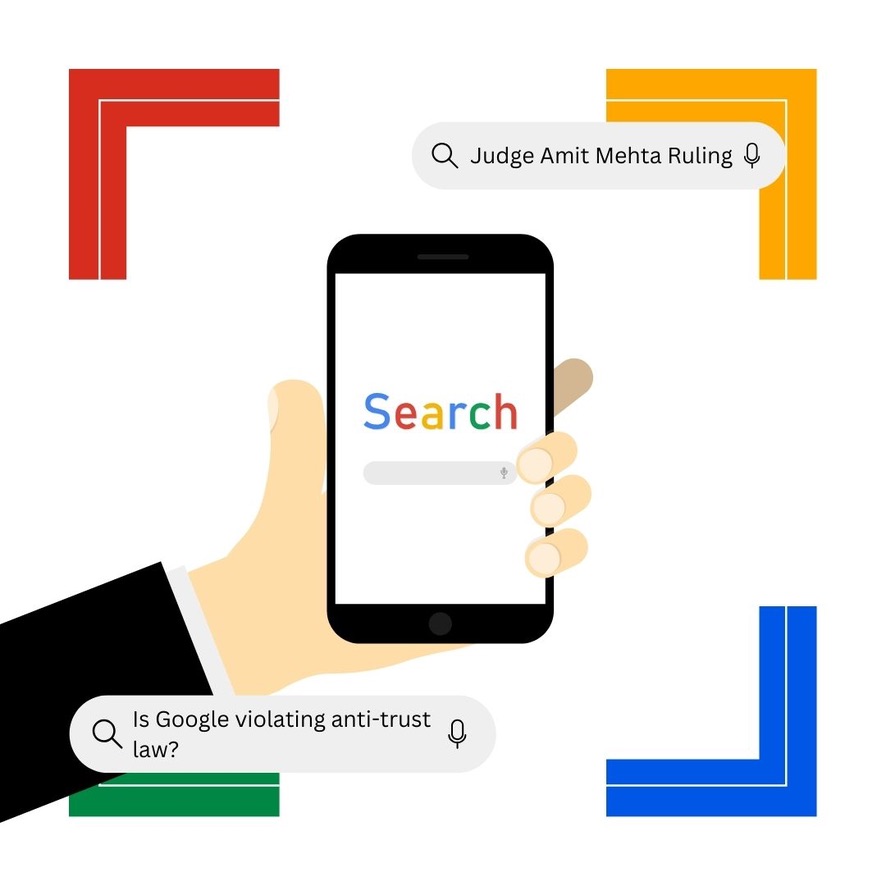United States District Judge Amit Mehta ruled on Aug. 5, 2024, that Google’s parent company, Alphabet, had illegally exploited its dominance in the search engine market, violating antitrust law. This landmark decision is from a lawsuit filed by the U.S. Department of Justice in 2020 and marks the most significant antitrust case in the United States in nearly a quarter of a century. While breaking up Google may be necessary if the goal is to restore search competition, the task may exceed the U.S. government’s current capabilities; the U.S. government was not able to break up Microsoft in 2000 under a similar concern, which raises the question about how it would even be possible to effectively regulate tech giants over three decades after the dot-com boom, and if the United States, the most powerful nation on Earth, is even big enough to take on Google.
Google has a near-total monopoly in search, controlling a global market share that, by estimates, is between 80 and over 90%. I use Google daily, and so do most of you; it’s unclear what else could be considered a monopoly if Google isn’t. Google’s current lead echoes Microsoft’s position in 2000 when it was ordered to split up due to antitrust violations. Back then, the United States v. Microsoft Corp. case centered on Microsoft bundling Internet Explorer with Windows, which resulted in crushing competition from the Netscape browser. That breakup of Microsoft, though, was narrowly reversed on appeal; the case, and especially its appeal, set important precedents for tech regulation, and from Google’s perspective, it’s important because the case against Microsoft failed.
Google’s situation differs in that its own monopoly stems from default search agreements and data advantages rather than forced bundling. Mehta’s ruling highlighted Google’s abuse of its dominant position to stifle competition with multibillion-dollar deals with device makers and browsers through their ownership of Android. From a market perspective, breaking up Google could foster innovation, allow smaller competitors to emerge, and prevent the concentration of data and market power. Unlike the Microsoft’s desktop software-centric model, Google has free, data-driven services like Chrome, Gmail and apps associated with Google Drive. Combined with Google’s hold on the default mobile operating software on almost all non-Apple phones via Android, this may force the U.S. to require a different approach to regulation, potentially focusing on data sharing or limiting default agreements rather than a straightforward company split.
More drastic measures the U.S. government may take include requiring Alphabet to divest parts of its vast business, such as Android or Chrome. However, enforcing these remedies may prove difficult, as seen in Epic Games, Inc. v. Apple Inc., where companies found workarounds to court-ordered changes. Additionally, Google’s global reach and the potential economic disruption to partners like Apple and Samsung complicate the situation.
The U.S. government’s ability to effectively regulate Google is hampered by several factors, including limited technological expertise — seen from online videos of a Senate Commerce, Science and Transportation Committee hearing if you know what I mean — outdated antitrust laws and the sheer scale of Alphabet/Google’s operations. These challenges are compounded by the global nature of Google’s business and the potential economic disruption to its partners and the tech ecosystem at large.
Despite these limitations, there are potential solutions that could address Google’s monopoly while fostering innovation and competition. A multi-faceted approach could include prohibiting exclusive default search agreements, mandating user choice for search engines and requiring Google to license its search index to competitors.
To ensure effective implementation, the government could establish an independent monitoring body with technical experts to oversee compliance and prevent workarounds. Additionally, focusing on data portability and algorithmic transparency could level the playing field for competitors without necessitating a complete breakup of the company.
More international cooperation in tech regulation could also bolster the U.S. government’s efforts in step with actions taken by the European Union’s European Commission, creating a more cohesive global approach to addressing the monopolistic practices of these unwieldy tech multinationals. But, last month, even the European Commission failed to enforce a 1.49 billion euro ($1.66 billion) antitrust fine levied against Google from five years ago. Any solution the U.S. is looking for must balance the need for effective regulation with preserving the benefits of Google’s services that everyone in America profits from or is affected by in some way, all while maintaining America’s position as a leader in technological innovation, which Google, along with Microsoft, Apple and others, maintain a huge part of.
The Google antitrust case could significantly impact the tech industry and reshape the search market. A balanced approach made up of involving targeted regulations, international cooperation and support for smaller firms is necessary to address Google’s dominance while fostering innovation and competition. The outcome will likely influence future tech regulation and how we interact with information online.
If both Judge Mehta and the Department of Justice are successful, they could very well reshape the “search market,” hopefully fostering more heated innovation and competition while also tampering with the largest established search engine that most use. As United States v. Google LLC unfolds, it will undoubtedly shape the future of antitrust law, tech regulation and how we interact with information online if Google really is able to get successfully dismembered by Uncle Sam. Anyways, good luck DOJ, and good luck Judge Mehta, you’ll definitely need it.
Andrew McDonald, FCRH ’26, is a history and political science double major from Sacramento, Calif.











































































































































































































